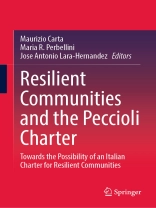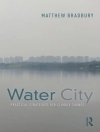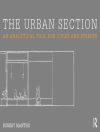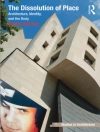This book explores urban resilience through significant, original and rigorous academic research, utilising the experiences of town planners, architects and decision makers to create a charter on resilient communities.
The second part of the book presents mini-essays discussing the strategic points of the paper, and enabling more casual readers with the ability to access information on urban resilience. The book then explores urban resilience through the work and understanding of the institutions responsible for regulating the professions of urban planner, educators, professionals, and those involved in communication.
Providing numerous illustrations and examples, Resilient Communities and the Peccioli Charter will be of interest to researchers, postgraduates, architects, urban designers and planners alike.
قائمة المحتويات
Part I: Urban Resilience in Times of Environmental Crises.- Introduction.- The Periphery Does Not Exist.- From Circular Design to Circular Dynamics.- Part II: The Charter of Peccioli.- Preamble to the Charter of Peccioli. A Vision for Italy: A Nation of Resilient Communities.- The Peccioli Charter, or the New Constitution of the Nation of the Italian Resilient Communities.- Part III: Contributions of the Steering Committee Members.- Introduction.- No More Masterplan! Resilient Communities Require Incremental, Adaptive and Generative Processes.- Building the Space of a Resilient.- The Reslient Landscape of a Community.- The Role of Cultural and Built Heritage as Drivers for the Ecological and Social Regeneration of Suburbs and Minor Urban Centers Toward Future Resilience.- Investing in Human Capital. Towards a New Paradigm of Urban and Social Resilience, Beyond the Notion of Profit.- Farming the Contemporary City: Resilience and Adaptation Strategies from the Past.- Urban Socio-Psychological Resilience.- Designing Material Cultures.- Urban Metabolism: Towards a Holistic Practice of Resilience.- The Right Distance. Forms of Representation for Resilient Communities.- Part IV: From the Charter to the Perspectives of Resilience: Impacts.- Introduction.- A Charter of Resilience: Methodologies and Impact. From a Manifesto in Seven Points to the International Symposiums and Workshops.- Homo Resilience: Cultural Diversity in the Time of the Novacene.- Resilient Cities for Resilient Communities.- The Era of Eco-Responsibility.- The Architecture of the New Century, Interpreter of Chance Through Continuity.- Active Communities for Resilient Cities. Urban Agenda for Italy: Industrial Districts as Resilient Economic, Social and Cultural Communities.- Resilient Padua.- For the Common Good: Courage and Resilience.- Women Architects of Resilience.-‘Spatial Drawings’: Towards Becoming Aware of Living.- Guidelines for a Resilient Urban Landscape.- For an Ethics of Becoming.- Part V: Conclusions.
عن المؤلف
Maurizio Carta is an architect, Ph D and full professor of urbanism and regional planning at the Department of Architecture and Academic Senator of the University of Palermo. Founder and Director of the Augmented City Lab, an international research agency about the cities of the future. He was Director of the Urbanism Department, Dean of the Polytechnic School of the University of Palermo and Deputy Mayor for the Historic Center of the Palermo Municipality. He is senior expert in strategic planning, urban design and local development, drawing up several urban, landscape and strategic plans in Italy. In 2015 the International Biennial of Architecture in Buenos Aires awarded him with the prize for “academic investigation”. In 2019 he was Italian Design Ambassador for the Foreign Affairs Ministry. He is visiting professor or keynote speaker in several universities and institutions. He is author of more than 300 publications, among the most recent: Reimagining Urbanism (Listlab, 2014), The Fluid City Paradigm (with D. Ronsivalle, Springer, 2016), Augmented City (Listlab, 2017) Dynamics of Periphery (with J. Schroeder, Jovis, 2018), Futuro. Politiche per un diverso presente (Rubbettino, 2019), Città aumentate. Dieci gesti-barriera per il futuro (Il Margine, 2021), Cosmopolitan Habitat (with J. Schroeder et al, Jovis, 2021).
Jose Antonio Lara-Hernandez is an architect, Ph D and he is the head of department of urban resilience research at the Institute of Mobility and Urban Territorial Development in Yucatan. He is a lecturer and active researcher in Marista University of Merida, leading the urban and architecture studio at the School of Architecture and Design. He is member of the curatorial team of the Italian Pavilion at the Venice Biennale 2021. He has more than ten years’ experience as a registered architect and urban designer and a chartered member of the Colegio de Arquitectos de Merida (Mexico). In addition, he was a co-founder of the IMPLAN-Merida (Municipal Institute of Urban Planning in Merida City). His research and professional experience include works in Mexico, Italy, Switzerland, New Zealand, and the United Kingdom. He focuses on research topics related to informality in the urban landscape, as well as studies on urban resilience and architectural exaptation. Dr. Lara-Hernandez is an active member of LW Circus which is a program focused specifically on experimental modalities in searching new strategies for sustainable urban and rural development on sensitive natural areas and territories. Additionally, he collaborates at the Cluster of Sustainable Cities in the University of Portsmouth (UK) which is an interdisciplinary research hub working at the interface of sustainable architecture, urban planning, social sciences, ICT and engineering. Antonio has published several academic articles focused on the impact of the transformation of the built environment at the streetscape level towards the diversity and inclusion city centres.
Maria R. Perbellini is the Dean of the School of Architecture and Design at the New York Institute of Technology and a tenured Professor of Architecture. Her leadership advances design innovation, intellectual diversity, emerging computational technologies and interdisciplinary programs. She has been notably recognized, including the 2018 AIA Long Island Educator Award. She holds a B.Arch from the Istituto Universitario di Architettura di Venezia in Italy and a M.Arch from Pratt Institute in New York. Prior to NYIT, Perbellini was the Associate Dean for Graduate Programs and Chair of Instruction in the College of Architecture at Texas Tech University. She also taught at the School of Architecture, University of Texas at Austin. She is the co-founder of Pongratz Perbellini Architects (PPA). Among others, PPA received the Segnalazione Premio Compasso d’Oro ADI, XXI Edition with the patented series in stone Hyperwave. Before establishing her own practice, she worked in NYC for Peter Eisenman and John Reimnitz on the design of prestigious commissioned buildings and international design competitions. She is an invited member of the Italian Pavilion Advisory Board at the 17th International Architecture Exhibition at the Venice Biennale 2021, designer and curator of exhibitions, installations and events, and one of the Creative Directors of the Virtual Italian Pavilion. Perbellini is also and invited member of the NYC Architecture Biennial Advisory Board. With Christian Pongratz, Perbellini is the co-editor of the Monograph on Peter Eisenman for Korean Architects-KA (No.156, 08/1997), and the co-author of the books Natural Born Caa Designers, (Birkhauser, 2000), Cyberstone (Edilstampa, 2009) and Digital Media for Design (Cognella Academic Publishing, 2016).












